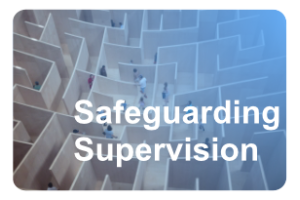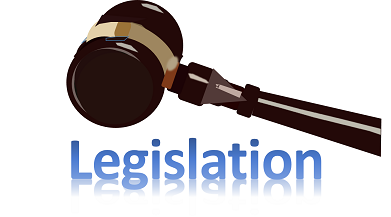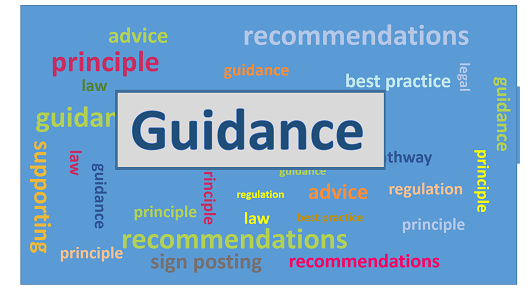Safeguarding News January 2024
Dear Colleague,
Welcome to the January 2024 safeguarding newsletter containing a wealth of recent news items, safeguarding information and resources.
Safeguarding compliance has become an increasingly challenging yet vital cornerstone strategy around which organisations are building their services, products and reputations. These processes work from both an employee and service user standpoint. The path to compliance varies by setting and impacts the entire organisation from CEO's, trustees and managers, through teachers, healthcare professionals, volunteers and so on, to all individuals within any organisation and beyond to the general public, via duty of care.
SAFEcic provides three cost-effective essential services that can expedite the path to compliance and best practice:
1. FREE Safeguarding Consultations
Great news! SAFEcic is restarting its extremely popular FREE safeguarding consultation service, however it is only available until the end of March 2024!
The consultation offer help and advice on:
- Safeguarding training

- Policies and procedures
- Audits
- Best practice
- Safer recruitment
- Single Central Record
- DBS checks
- and much more
If you and your organisation might benefit from talking to one of our experts, please email us at This email address is being protected from spambots. You need JavaScript enabled to view it. to arrange your FREE consultation.
2. Safeguarding Supervision
Last month SAFEcic announced the launch of its new, best-practice Safeguarding Supervision service aimed at educators. This month we take a closer look at the service and the benefits it can provide and answer some key questions about it.
- Who is the service aimed at?
Safeguarding Supervision is a best practice session aimed at educators and designed to enhance outcomes for children.
session aimed at educators and designed to enhance outcomes for children. - What are the objectives of the service?
Effective supervision provides support, coaching and training for staff and promotes the interests of children. Supervision will foster a culture of mutual support, teamwork and continuous improvement, which encourages reflection and confidential discussion of sensitive issues. - How many people can participate?Safeguarding Supervision can be delivered one-to-one for individuals or for groups of up to 5 people.
- How is the service delivered?
Safeguarding Supervision is delivered by a trained safeguarding supervisor, with extensive experience of safeguarding in educational settings. The service can be delivered either live online at a time to suit your schedule, or can be delivered face-to-face at the same price but with travel/accommodation as an additional charge. - How long is the Safeguarding Supervision?
Each session takes typically 1.5 hours. Pricing also includes a follow up.
3. Safeguarding Rapid Review Service
Taking just two hours management time via Zoom or Teams, SAFEcic's Safeguarding Rapid Reviews are ideal for all sectors including Ofsted, CQC and Charity Commission regulated organisations.
Rapid Review Aims
Our Safeguarding Rapid Reviews are a proven, cost- effective and efficient way for busy managers, directors and trustees to quickly and easily gain external, expert insight and support to help their organisation attain the highest level of safeguarding culture, policy, procedures and practice.
effective and efficient way for busy managers, directors and trustees to quickly and easily gain external, expert insight and support to help their organisation attain the highest level of safeguarding culture, policy, procedures and practice.
What is included?
Each Rapid Review includes the preparation of a high-level assessment report and a RAGGED (Red, Amber, Green) action plan to efficiently and cost effectively address any issues identified.
Training Schedule
Our latest training schedule is listed below and feel free to share this email with your colleagues and they too can join our newsletter database.
To sign up simply click here.
Services Update
SAFEcic is also accepting many more bookings for its Rapid Review Service, its face to face safeguarding training and audit services. There is also a packed calendar of blended learning events available to book for your organisation. The courses are a very cost effective way of training your staff and volunteers.
SAFEcic Blended Learning Training Calendar
Leading on Child and Adult Safeguarding
Safeguarding Training, Leading on Child and Adult. Online course plus Zoom
Tue 26 March 2024
10:30 - 12:00 GMT
Safeguarding Training, Leading on Child and Adult. Online course plus Zoom
Tue 16 April 2024
10:30 - 12:00 GMT
Safeguarding Training, Leading on Child and Adult. Online course plus Zoom
Thu 25 April 2024
10:30 - 12:00 GMT
Safeguarding Training, Leading on Child and Adult. Online course plus Zoom
Wed 8 May 2024
10:30 - 12:00 GMT
Safeguarding Training, Leading on Child and Adult. Online course plus Zoom
Tue 11 June 2024
10:30 - 12:00 GMT
Safeguarding Training, Leading on Child and Adult. Online course plus Zoom
Tue 9 July 2024
10:30 - 12:00 GMT
Safeguarding Training, Leading on Child and Adult. Online course plus Zoom
Tue 6 Aug 2024
10:30 - 12:00 GMT
Safeguarding Training, Leading on Child and Adult. Online course plus Zoom
Wed 11 Sept 2024
10:30 - 12:00 GMT
Safeguarding Training, Leading on Child and Adult. Online course plus Zoom
Thu 3 Oct 2024
10:30 - 12:00 GMT
Safeguarding Training, Leading on Child and Adult. Online course plus Zoom
Tue 5 Nov 2024
10:30 - 12:00 GMT
Safeguarding Training, Leading on Child and Adult. Online course plus Zoom
Wed 4 Dec 2024
10:30 - 12:00 GMT
Standard Child and Adult Safeguarding
Safeguarding Training, Standard Child and Adult. Online Course plus Zoom
Wed 27 March 2024
10:30 - 12:00 GMT
Safeguarding Training, Standard Child and Adult. Online Course plus Zoom
Thu 16 May 2024
10:30 - 12:00 GMT
Safeguarding Training, Standard Child and Adult. Online Course plus Zoom
Tue 2 July 2024
10:30 - 12:00 GMT
Safeguarding Training, Standard Child and Adult. Online Course plus Zoom
Thu 19 Sept 2024
10:30 - 12:00 GMT
Safeguarding Training, Standard Child and Adult. Online Course plus Zoom
Tue 26 Nov 2024
10:30 - 12:00 GMT
Safeguarding: Trustees’ legal responsibilities
Safeguarding: Trustees' legal responsibilities. Online Course plus Zoom
Wed 17 April 2024
10:00 - 11:30 GMT
Safeguarding: Trustees' legal responsibilities. Online Course plus Zoom
Wed 10 July 2024
10:00 - 11:30 GMT
Safeguarding: Trustees' legal responsibilities. Online Course plus Zoom
Wed 25 Sept 2024
10:00 - 11:30 GMT
Safeguarding: Trustees' legal responsibilities. Online Course plus Zoom
Tue 15 Oct 2024
10:00 - 11:30 GMT
Safeguarding: Trustees' legal responsibilities. Online Course plus Zoom
Tue 3 Dec 2024
10:00 - 11:30 GMT
Safer Recruitment Training. Online course plus 2 Hr Live Online training
Thu 14 March 2024
10:00 - 12:00 GMT
Safer Recruitment Training. Online course plus 2 Hr Live Online training
Thu 25 April 2024
10:00 - 12:00 GMT
Safer Recruitment Training. Online course plus 2 Hr Live Online training
Tue 4 June 2024
10:00 - 12:00 GMT
Safer Recruitment Training. Online course plus 2 Hr Live Online training
Tue 11 July 2024
10:00 - 12:00 GMT
Safer Recruitment Training. Online course plus 2 Hr Live Online training
Tue 24 Sept 2024
10:00 - 12:00 GMT
Safer Recruitment Training. Online course plus 2 Hr Live Online training
Wed 6 Nov 2024
10:00 - 12:00 GMT
Managing and Leading on International Safeguarding
Managing and Leading on International Safeguarding Training. Online course plus Zoom
Wed 28 February 2024
10:00 - 11:30 GMT
Managing and Leading on International Safeguarding Training. Online course plus Zoom
Tue 23 April 2024
10:00 - 11:30 GMT
Managing and Leading on International Safeguarding Training. Online course plus Zoom
Tue 10 Sept 2024
10:00 - 11:30 GMT
SAFEcic's free hub resources by setting are available through the SAFEcic.co.uk main menu. Alternately you can bookmark the links below:
Education | Dental | Charities | GP & Primary Medical Services | Fath Groups | Entertainment & Leisure | Working Overseas |
Legislation

England
If a child can’t live with their parents, they should ideally live with someone they already know and trust. This is called kinship care. The Law Commission will be carrying out a review into the legal framework for kinship carers. The project has been referred by the Department for Education who are seeking to ensure the legislative framework is fair, modern, and best meets the needs of some of the most vulnerable members of society.
The review will seek to understand how current legislation can lead to a variation in rights and entitlements for families and the services provided for them. Simplifying legal orders available for kinship carers will increase both transparency and accountability of the system and make it easier for kinship carers to know what they are entitled to.
The project will begin when resources at the Commission become available, following the completion of current projects. The terms of reference for the project will be published in due course on our website.
Sexual Offences Act 2003 amendments to new offences
Children will be better protected from sexual abuse following change to the law making it easier to prosecute criminals who have had sex in front of children for gratification.
The tabled amendment would amend offences at sections 11, 18, 32, 36 and 40 of the Sexual Offences Act 2003 to criminalise sexual activity in the presence of a child or a person with a mental disorder, where the defendant engages in sexual activity in the child’s presence for the purposes of obtaining sexual gratification but does not know, intend or believe the child is aware that they are engaging in the sexual activity.
Currently the law in this area hinges on whether the defendant knew or believed that child was aware of sexual activity in their presence, or if the defendant intended them to be aware of it. However, proving this belief, knowledge or intention can be problematic in some cases, particularly when the child involved is too young to give evidence.
Instead, the amendment will mean that the offences will no longer require the defendant to know, believe or intend that the child is aware of the sexual activity but retains the link between the fact of the child’s presence and the defendant’s own sexual gratification.
This change avoids inadvertently criminalising sexual activity between parents who share a bedroom with a young child.
The Children (Care and Justice) (Scotland) Bill is at stage 2. It proposes legally raising the age of a “child” and relates to the children’s criminal hearing system only.
The Hearings for Children Report: response progress report (published on 21 December 2023)
Recommendation 3.9 states:
“All children and young people up to age 18 who are convicted at Court should have the opportunity of either a remit to the children’s hearing or a request for the advice of the children’s hearing by the Court (an Advice Hearing), in accordance with the terms of the Children (Care and Justice) (Scotland) Bill.”
Duties and definition of a child to all other children is defined by the Rights of the Child and Scotland’s National Guidance
Getting it right for every child (GIRFEC) has been developed to provide Scotland with a consistent framework and shared language for promoting, supporting, and safeguarding the wellbeing of children and young people.
National Guidance for Child Protection in Scotland 2021 - updated 2023
This is non-statutory national Guidance and describes responsibilities and expectations for all involved in protecting children in Scotland. And states:
“1.2 In general terms, for the purposes of this Guidance, the protection of children and young people include unborn babies, and children and young people under the age of 18 years.
1.3 It is important to note that for the purposes of the UNCRC, the rights apply to anyone under the age of 18. Article 1 states that this is the case unless majority is attained earlier under the law applicable to the child. Scottish Government intends to incorporate UNCRC within domestic law”
Statutory Guidance

England and Wales
Prevent Duty Guidance England and Wales updated 15 January 2024
The aim of Prevent is to stop people from becoming terrorists or supporting terrorism. Prevent also extends to supporting the rehabilitation and disengagement of those already involved in terrorism. The Prevent duty applies to specified authorities in England and Wales, and Scotland.
Prevent duty guidance as contained in Section 26 of the Counter-Terrorism and Security Act 2015
- the Prevent duty guidance for England and Wales (2023) - this is statutory guidance for specified authorities in England and Wales, issued on 7 September 2023 under Section 29 of the Counter Terrorism and Security Act 2015 - it came into force on 31 December 2023
- the Prevent duty guidance for England, Wales and Scotland (2015) - specified authorities in England and Wales were required to have regard to the 2015 guidance until the 2023 guidance came into force on 31 December 2023 - the 2023 guidance replaces the 2015 guidance, and specified authorities must have regard to the new guidance.
- the Prevent duty guidance for Scotland (2015) - this is statutory guidance for specified authorities in Scotland.
England & Wales Statutory Guidance together with
Scotland & Northern Ireland as Non-Statutory Guidance Modern Slavery: Statutory Guidance for England and Wales (under s49 of the Modern Slavery Act 2015) and Non-Statutory Guidance for Scotland and Northern Ireland updated January 2024
Describes the signs that someone may be a victim of modern slavery, the support available to victims, and the process for determining whether someone is a victim.
This guidance is for:
- first responder organisations
- organisations with a duty to notify the Home Office when encountering a potential victim of modern slavery
- other organisations involved in the identification of potential victims of modern slavery
- decision makers at the National Referral Mechanism (NRM) competent authorities
- organisations offering support to potential victims and victims of modern slavery
Inquiry and Review Announcements and Reports

“More to do to tackle rape misconceptions and lack of understanding of consent”, CPS survey finds
The CPS commissioned charity Equally Ours to carry out analysis of the public understanding of rape and serious sexual offences, and the law on consent, reflecting the changing nature of sexual behaviours.
This research used recent evidence on how the public view rape and serious sexual offences to further inform the effective handling and prosecution of these cases.
Overall, a survey of more than 3,000 UK adults - the largest on this topic in five years - found that while the public’s accurate understanding of rape has grown over the past 20 years, there are still significant false beliefs, misunderstandings, lack of knowledge, and underlying misconceptions. It also revealed misconceptions about rape have moved into the digital age with a focus on the behaviour of victims online.
Most people correctly identified:
- t can still be rape if a victim doesn’t resist or fight back (74% got this right)
- victims may not immediately report to the police (67% got this right)
- being in a relationship or marriage does not mean consent to sex can be assumed (70% got this right)
- f a man has been drinking or taking drugs, he is still responsible if he rapes someone (71% got this right).
But many misconceptions about rape still exist:
- Few accurately identified most rapists know their victim (39% got this right)
- Fewer knew victims will not always seem distressed when talking about what happened to them (only 26% got this right)
- And even fewer still recognised few offenders use physical violence, 17% got this right)
- Only a third of respondents correctly identified women rarely make up rape allegations (36% got this right)
- There was a significant lack of understanding around what is meant by reasonable belief of consent by the suspect, with 49% of people saying they were unsure or did not know what it meant.
And the response of 18-24-year-olds in upholding views based on false assumptions and misconceptions was particularly striking:
Only half recognised that it can still be rape if a victim doesn’t resist or fight back (53% got this right)
- Less than half recognised victims may not immediately report to the police (43% got this right)
- Less than half recognised that being in a relationship or marriage does not mean consent to sex can be assumed (42% got this right, compared to 87% of people aged 65 and above)
- Less than half recognised that if a man has been drinking or taking drugs, he is still responsible if he rapes someone (46% got this right)
- Young people were also far less likely to understand that if a person says online they want to meet up and have sex, that doesn’t mean they have to have sex when they meet (28% of 18-24-year-olds got this right, compared to 54% of people overall)
- Overall, two thirds (62%) of respondents recognised that even if no physical force is involved a person might not be free and able to consent to sex; but this dropped to 40% when young people were asked, compared with 74% of over 65s.
Other findings:
The research, which also involved focus groups of different age groups, recognised the responsibility should be on men not to rape, which was mirrored in the survey. However, only the focus group with women aged 35-65 agreed victims should not have to modify their behaviour to avoid rape.
Some of the focus groups had a set idea about who could be a rapist, not realising rapists come from all walks of life – they can be someone’s friend, neighbour, brother, father, son, or partner.
In the survey only 31 per cent knew that men who rape often plan and use strategies to rape, for example, by picking a woman they think won’t be believed, encouraging her to be sexual online, or to drink, or finding ways to get her by herself, like insisting on taking her home after a night out.
Two thirds (63%) recognised that men often lie about whether they have committed rape.
Drink spiking in bars and nightclubs as a means to rape also emerged in the survey as a modern version of aggravated stranger rape.
Research Reports, Consultations and Studies

1. Child Sexual Abuse and Exploitation Analysis Launched
For the first time, a new report from the Vulnerability Knowledge and Practice Programme (VKPP) sets out publicly a clear, detailed picture of reported Child Sexual Abuse and Exploitation (CSAE) crimes across England and Wales.
Based on datasets collected from 42 police forces, this national snapshot gives insight and analysis into the scale and nature of CSAE, trends in offending, including crime types, where they were committed, and presents profiles of both victims and perpetrators.
The analysis sets out the consistent growth in CSAE reported to police with 107,000 crimes reported to policing a figure that has risen significantly in the last ten years ago. More than half of CSAE offences were committed by children, a significant increase from what was previously known. The report also shows that over a third of CSAE contact crimes take place within the family environment. Group-based CSAE accounts for 5% of all identified and reported CSAE.
It is known that there is significant under-reporting of these crimes, but policing recognises the value of presenting a known baseline of recorded abuse and harm taking place against children, to inform future understanding.
The report found:
- There were around 107,000 offences reported in 2022 – a 7.6% increase compared to 2021, nearly quadruple what it is was 10 years ago. Evidence continues to suggest many crimes remains unreported.
- Around 75% of CSAE offences related to sexual offences committed directly against children, and around 25% relate to online offences of Indecent Images of Children.
- The crime types regarding CSAE are changing. For example, historically Child-on-Child abuse accounted for around third of offences. The data in the report suggests that today this is just over half.
- CSAE within the family environment remains a common form of reported abuse, accounting for an estimated 33% of reported contact CSAE crime. Parents and siblings were the two most common relationships featuring.
- Group-based CSAE accounts for 5% of all identified and reported CSAE ranging from unorganised peer group sharing of imagery, to more organised complex high harm cases with high community impact.
- Reported CSAE is heavily gendered, as expected, with males (82% of all CSAE perpetrators) predominantly abusing females (79% of victims). Sexual offending involving male victims are more common in offences involving indecent images and younger children.
- The number of recorded incidents of Online Sexual Abuse continues to grow. It accounts for at least 32% of CSAE.
- 52% of all CSAE cases involved reports of children (aged 10 to 17) offending against other children with 14 being the most common age. This is a growing and concerning trend involving a wide range of offending. Whilst some include exploratory online sexual behaviours, some of the most prevalent forms include serious sexual assaults, including rape.
2. The Information Commissioner’s Office (ICO) has launched a consultation series on generative Artificial Intelligence (AI), examining how aspects of data protection law should apply to the development and use of the technology.
Generative AI models are being used across the economy to create new content, from music to computer code. The first consultation examines when it is lawful to train generative AI models on personal data scraped from the web.
The ICO is seeking views from a range of stakeholders, including developers and users of generative AI, legal advisors and consultants working in this area, civil society groups and other public bodies with an interest in generative AI.
The first consultation is open until 1 March 2024. Future consultations will examine issues such as the accuracy of generative AI outputs and will be launched throughout the first half of 2024.
3. Results published in policing’s largest integrity screening project
Historical data wash completed with thousands of police workforce checked:
- 307, 452 officers, staff and volunteers checked against the Police National Database (PND)
- First time any workforce has undergone integrity screening on this scale
- Working towards longer term Continuous Integrity Screening solution
January 2024 sees the publication of the largest integrity screening project undertaken in policing, with over 307,000 officers, staff and volunteers checked against the Police National Database (PND).
In January 2023, the National Police Chiefs’ Council (NPCC) contacted all police forces and asked them to prepare their HR data so all officers, staff and volunteers could be checked against the PND.
The Police National Database (PND) is a data store of operational policing information and intelligence provided by individual forces. It contains copies of locally held police records covering intelligence, crime, custody, child protection and domestic abuse investigations.
Building on the data wash work, the NPCC is now working with the Home Office to consider a longer term integrity solution for policing which will provide forces with a solution which alerts them to any new information in a timely manner.
Key results from the historical data wash :
- 307, 452 officers, staff and volunteers checked against Police National Database
- 461 of those were referred to an appropriate authority and of these:
- triggered further criminal investigation
- 88 triggered disciplinary investigation
- 139 triggered vetting clearance
- 128 triggered management intervention
- 97 required no further action
Individuals identified in above step either dealt with through stringent professional standards processes to manage and/or mitigate risk or referred to an appropriate authority Those referred to an appropriate authority dealt with in one of following ways:
- Criminal investigation
- Disciplinary investigation (misconduct)
- Management intervention (dealt with by supervision)
- Vetting clearance (re-vetting)
- No further action
The Appropriate Authority is the term for the person responsible for considering complaints made about the force and/or individuals within. AA’s are the rank of at least the Chief Inspector or Police Staff equivalent with accredited training. They work within the Authorised Professional Practice (APP) and are usually based within a Professional Standards team.
Regulatory Bodies

1. Ofsted
Sir Martyn Oliver will embark on a Big Listen with all sectors Ofsted inspects and regulates at the start of his tenure as His Majesty’s Chief Inspector of Education, Children’s Services and Skills.
The Big Listen, to begin later this term, will allow Sir Martyn to hear directly from parents and professionals about the strengths and weaknesses of Ofsted’s current approach to inspection and regulation.
As an immediate priority, the new Chief Inspector will focus on Ofsted’s response to the coroner’s inquest into the tragic death of Ruth Perry.
Sir Martyn will lead initial training for all inspectors. The session will also include training and support from Mental Health First Aid England, who will then lead a rolling programme of further mental health awareness training for all inspectors. Details of this training will be published, ensuring it is embedded throughout the professions.
2a Public trust in charities and the role and experience of trustees
The Charities Commission has been evaluating trust in charities for over a decade to understand what drives it and how charities and their regulator can foster it.
This shows that:
- public trust in charities is nuanced and complex, driven by good regulation but also the actions and behaviours of individual charities
- negative actions by one charity can have an affect on perception of charities generally
- not everyone thinks of ‘charities’ as the same thing or values them in the same way
2b The Commission has opened a statutory inquiry into The Kingdom Church GB following reports that the church’s pastor and trustee, Bishop Climate Wiseman, was using a website linked to the church to sell a fake Covid-19 remedy.
In the course of its inquiry, the Commission appointed an interim manager to conduct a review of the charity’s governance, and as a result of the findings, the inquiry determined the charity should be wound up and dissolved. The charity was removed from the register on 21 February 2023. The preacher was later found guilty of fraud at Inner London Crown Court.
The Commission’s inquiry concluded that the trustees for The Kingdom Church GB had:
- allowed Wiseman to unilaterally make decisions about the charity.
- failed to manage conflicts of interest between Wiseman’s business interests and the charity.
- demonstrated poor financial controls and management.
- failed to keep accurate charity records.
- exposed the charity’s reputation to undue risk by allowing the charity to be linked to Wiseman’s private business interests, including the Covid-19 scam.
As well as directing the Interim Manager to close the charity, the Commission disqualified Wiseman from being a charity trustee or holding a senior position in a charity for 15 years. Five other trustees were disqualified for varying lengths of time.
Online Safety

Don’t delay talking to girls about keeping safe online, parents urged
Research from Anglia Ruskin University’s Policing Institute for the Eastern Region (PIER) shows that two-way communication, as well as careful monitoring, is the most effective way to prepare girls to handle online requests for indecent images. The research draws on survey results that were conducted following a public awareness campaign run by the Internet Watch Foundation (IWF) in 2021. The UK charity is responsible for finding and removing images and videos of child sexual abuse from the internet. The campaign aimed to build resilience among girls, and their parents, around online requests for sexual imagery. ‘Self-generated’* child sexual abuse content is created using webcams on tablets, smartphones or other tech devices, predominantly in children’s own homes, and without the abuser present. The criminal material is then shared online via a growing number of platforms. In many cases, children are groomed, deceived or extorted by online predators into producing and sharing sexual images or videos of themselves.
From 2020 to 2021, there was a 168 per cent increase in the proportion of webpages displaying self-generated imagery found by the IWF.
More than 80 per cent of those webpages (147,188 out of 182,281) included images and videos of girls aged from 11 to 13 years old.
This trend has continued. Data from 2022 show that the majority (64%) of the 199,363 webpages containing self-generated videos and images that were removed by the IWF featured 11- to 13-year-old girls.
The report says that parents and carers should not wait for the ‘right time’ to talk to their children, as broaching the issue is unlikely to backfire, and researchers recommend that it is still ‘better to talk than not’. The report analysed more than 3,000 survey answers from both parents/carers and their daughters, girls aged between 11 and 13 years old. The survey participants, who were not known to be victims of online child sexual exploitation themselves, were asked questions about the IWF public awareness campaign, and how they thought they would deal with requests for indecent images.
Commissioned by the Home Office, the PIER report explored awareness, understanding and behaviour among the survey respondents in relation to the proliferation of self-generated indecent images and videos. A combination of talking and monitoring measures was found to best give girls the confidence and know-how to respond safely online if they receive requests for explicit material. This could be through ignoring requests, blocking another person or to tell someone, such as a family member or the police. But researchers point out that monitoring measures should not be overly restrictive and that talking must be meaningful. Survey responses showed that many girls want to be provided with the practical tools to manage their online lives and to be trusted to do so.
Additionally, parents and carers need to keep up to date with technological change, and the programmes and social media platforms being used, so that they can more effectively help girls keep safe online. The report further recommends focusing on teaching digital literacy to children and young people and showing them how to engage in activity online using critical and ethical thinking. Though in the minority, some of the parents surveyed blamed the victims themselves or other parents for the rise in self-generated material. Researchers note that these attitudes can be unhelpful as it can prevent victimised children and their parents/carers from seeking out the help they need.
Talk Trust Empower report from PIER offers insight into girls & their parents' understanding of online self-generated child sexual abuse.
You can also listen to the latest episode of the 'In Conversation With' podcast series
Scams

1. Fraudsters impersonate NCA officers in 'child pornography' scam emails
Since the beginning of December 2023, Action Fraud and the Suspicious Email Reporting System (SERS) have received over 180 reports concerning the impersonation of National Crime Agency (NCA) agents.
The victims describe receiving an email purporting to be from the NCA. The email states that the NCA has evidence that the recipient has accessed and viewed “child pornography” or other “illegal pornographic content”.
The emails demand that the recipient make contact within a specified deadline. If they do not, the email claims that a warrant will be issued for their arrest and that the recipient’s details will be added to the sex offenders register, quoting legislation in an effort to make the threat sound legitimate.
It is assessed that the intention of the email is to prompt the victim into initiating communication with the suspects so that personal information can be disclosed to be used for blackmail or to commit fraud. Unlike other emails which impersonate law enforcement, there is no up-front demand for money however, where victims have engaged with the suspects, they have demanded money at a later stage.
The use of such threatening language creates a significant and emotional impact upon the recipient. The time pressure that is applied encourages victims to panic and act without thinking, unknowingly exposing themselves to compromise and blackmail.
What you need to do
The NCA will not send unsolicited correspondence requesting money or bank details. If you have doubts about the authenticity of a message received from the NCA, please call 0370 496 7622.
Remember, your bank (or any other official source) will not ask you to supply personal information over email.
If you think an email is suspicious, you can report it by forwarding the email to: This email address is being protected from spambots. You need JavaScript enabled to view it..
Every report counts
If you have been a victim of fraud or cyber-crime, report it online or by calling 0300 123 2040.
2. Phishing: Spot and report scam emails, texts, websites and calls: Guidance
How to recognise and report emails, texts, websites, adverts or phone calls that you think are trying to scam you.
As of December 2023, the number of reports received stands at more than:
- 27 m reported scams
Which has resulted in:
- 161k scams being removed across 295,300 URLs
Why you should report suspicious emails.
The purpose of a scam email is often to get you to click a link. This will take you to a website which might download a virus to your computer or steal passwords or other personal information. This is sometimes known as 'phishing'.
The National Cyber Security Centre (NCSC) has the power to investigate and remove scam email addresses and websites. It's free to report a suspicious email and it only takes a minute. By reporting phishing attempts you can:
- reduce the amount of scam emails you receive
- make yourself a harder target for scammers
- protect others from cyber-crime online
Worthy of Note

1. Autism in Racing and Autism at Work Join Forces
Autism in Racing, the brainchild of racing broadcaster and autistic champion Bobby Beevers, has proudly announced its collaboration with the National Autistic Society to facilitate employment opportunities for autistic individuals within the racing sector. Established in 2021, Autism in Racing, under Beevers' leadership, has garnered significant support from the racing community. The sport has actively hosted autism-friendly race days at various tracks across Britain as part of their commitment to inclusivity.
The recent partnership with the National Autistic Society’s Autism at Work Programme, funded by the Bloomfield Trust, is set to amplify efforts. The joint initiative aims to inspire and support autistic individuals in pursuing diverse roles within the racing industry. Beevers is driven by a desire to address the stark employment statistics, revealing the disheartening fact that only 29% of autistic people are currently employed, as reported by the Office for National Statistics.
The collaboration encompasses a multifaceted approach, incorporating webinars, training sessions for organisations employing autistic staff, and job coaching designed to support autistic individuals during their first six months in racing roles.
2. Family hubs now open in local authorities across half the country as new Little Moments Together campaign launches.
Parents across England can now access free help and support at local family hubs, with all 75 local authorities involved in the government scheme now offering access to a centre.
The hubs centralise a range of vital services in one location and act as a ‘one stop shop’ for parents and children. Trained staff provide practical help including early language and communication development, mental health support for parents and carers, and programmes for improving children’s home development.
This milestone comes as the government launches the new national Start for Life Little Moments Together campaign, providing free resources and advice to help parents make the most of every moment - even waiting for a bus or shopping together - to further their child’s development.
The government is investing around £300 million to embed the family hub approach and enhance Start for Life services across the country for families with children aged 0-19 years, and 0-25 years for children with SEND.
On top of this, eligible working parents of 2-year-olds are currently able to register to access 15 hours free childcare per week from April 2024. This is the first step in the rollout of the largest investment in childcare in England’s history, expanding 30 free hours of childcare for working parents, from nine months old up to when their child starts school by September 2025. This is set to save parents using the full 30 hours up to £6,500 per year.
Family hubs go hand in hand with the government’s Supporting Families programme, which aims to build the resilience of vulnerable families and drive change across the country, so that every area has strong local services which are able to identify families in need and provide the right support at the right time.
The government’s plan to transform children’s social care also set out how it will reform the children’s social care system, to focus on meaningful early support for families, reducing the need for intervention at a later stage. This includes the Families First for Children pathfinder programme, which simplifies early help services and brings them together into one single system.
3. Government sets out plans to develop the domestic care workforce
Social care staff will have better training, clearer career paths and improved job prospects thanks to government plans to develop the domestic care workforce, set out today.
The Department of Health and Social Care has unveiled a package of measures that will reaffirm care work as a career, helping to recruit and retain talent by providing new, accredited qualifications, digital training and funded apprenticeships.
The reforms are underpinned by a new career pathway for care workers; the first time this has been brought together in a single place for care staff to use, to build and develop their careers. It will support people to gain the right knowledge, skills and expertise needed to deliver excellent care, giving clear differentiation between roles based on the level of expertise people should have and expect to develop.
Backed by £75 million in funding, the announcement comes in the week the government also started the second phase of the Made with Care recruitment campaign, aimed at getting more people in the UK to consider a rewarding career in care.
The plans being rolled out include:
- The launch of the Care Workforce Pathway: For the first time, there will be a national career structure for the adult social care workforce, covering the breadth and complexity of care.
- Over £50 million of funding for a new qualification: This will support up to 37,000 individuals in direct adult social care roles to enrol on the new Level 2 Adult Social Care Certificate qualification between June 2024 and March 2025.
- An investment of over £20 million for apprenticeships: Local authorities and adult social care providers will be able to use the money towards training and supervising hundreds of new social work and nurse apprentices.
- Subsidised training places: An uplift to the Workforce Development Fund will expand access to learning and development, creating opportunities for the workforce to become experts in their field or progress into new roles.
- A new digital leadership qualification: This will help equip social care leaders and managers with the confidence and capability to lead the implementation and use of technology in the delivery of care.
Reasons to Remain Vigilant in All Aspects of Safeguarding
Online predator who blackmailed and abused dozens of children and adults is jailed
A ‘pupil’ of one of the most dangerous sexual predators ever investigated by the National Crime Agency has been jailed for 24 years for committing dozens of black mail and online sex offences.
Anthony ‘Danny’ Burns, 39, worked with notorious online child sex offender Abdul Elahi, who was jailed for 32 years in December 2021 after targeting 2,000 people globally to commit sadistic online abuse.
Between May 2018 and March 2021, Burns used ‘sugar daddy’ websites to trap dozens of unsuspecting females into performing sexual and degrading acts under the threat of blackmail. One of his 35 victims was a seven-year-old girl in the US, who was abused by her mother following sustained coercion by Burns.
Burns attempted to contact approximately 600 people around the world with the intention of sexually exploiting them.
Elahi ‘tutored’ Burns on the psychology of blackmail, including techniques such as scripted wording to help gain the trust of victims, and provided instruction on how they would respond to threats and what to say to them.
Burns, originally from Lowestoft, used multiple online personas to ensnare his victims, including posing as the head of a model agency searching for clients. He also pretended to be an NCA officer on one occasion. Once Burns had gained the trust of his victims, he moved them to WhatsApp which is protected by end to end encryption. He was able to delete read messages from his and his victims’ phones, thereby removing visible evidence.
All the victims were ordered to film themselves carrying out sexual acts in the belief they would be paid £600, but the money was never transferred to them. When he had received enough explicit material, Burns threatened to expose the pictures to the victims’ families and friends unless they sent more increasingly depraved photographs and videos.
The nature of the demands became more severe and degrading at the point that Burns had entrapped the victims through the threat of exposure.
NCA officers arrested Burns in February 2019. His mobile phone and computers were seized and forensically examined. The FBI aided the NCA’s investigation and helped locate victims in the United States. Most of Burns’ other victims lived in England but there were also people in the Channel Islands and Australia.
Incriminating evidence uncovered by NCA investigators from Burns’ phone highlighted the scale and propensity of his offending, and that he was blackmailing several victims simultaneously. The NCA liaised with New Zealand authorities to recover all of the abuse material Burns had saved separately from his devices on a cloud storage platform. This proved he had retained the depraved material he demanded from his victims.
It was the analysis of this material which led to NCA investigators identifying the child and mother in the US. The child has since been safeguarded and the mother has been sentenced to 21 years in prison.
Burns was charged with 46 counts including blackmail, attempted blackmail, causing a child under 13 to engage in sexual activity, arranging the commission of a child sex offence; making and distributing indecent images of children (IIOC), possessing extreme pornography, malicious communications offences and failure to comply with notification requirements. He admitted 41 counts and was found guilty of a further two on 30 August last year, following a two-day trial at Birmingham Crown Court. The remaining charges will lie on file.
He was sentenced to 24 years in prison with a further five on licence at the same court today (19 January). He will also be subject to an indefinite sexual harm prevention order and has been placed on the sex offenders register for life. All 35 of Burns’ victims on the indictment, aged between seven and 54, have been safeguarded.
Advice for children, young people, and adults who have been coerced to send nude images and blackmailed online, as well as the numerous support services available can be found on the NCA website.
And Finally
February 6 2024 saw Safer Internet Day
As a standout event in the online safety calendar, Safer Internet Day aims to make the online world a safer space for our children and young people. Last year, there were over 5,000 organisations supporting this cause.
You can still download the educational resources for schools, youth groups, police services, libraries, etc. They are designed for ages 3–18 and include interactive stories, worksheets, and group discussions. There is also provided, specialised options for those with Special Educational Needs and Disabilities (SEND) and Additional Learning Needs (ALN).




